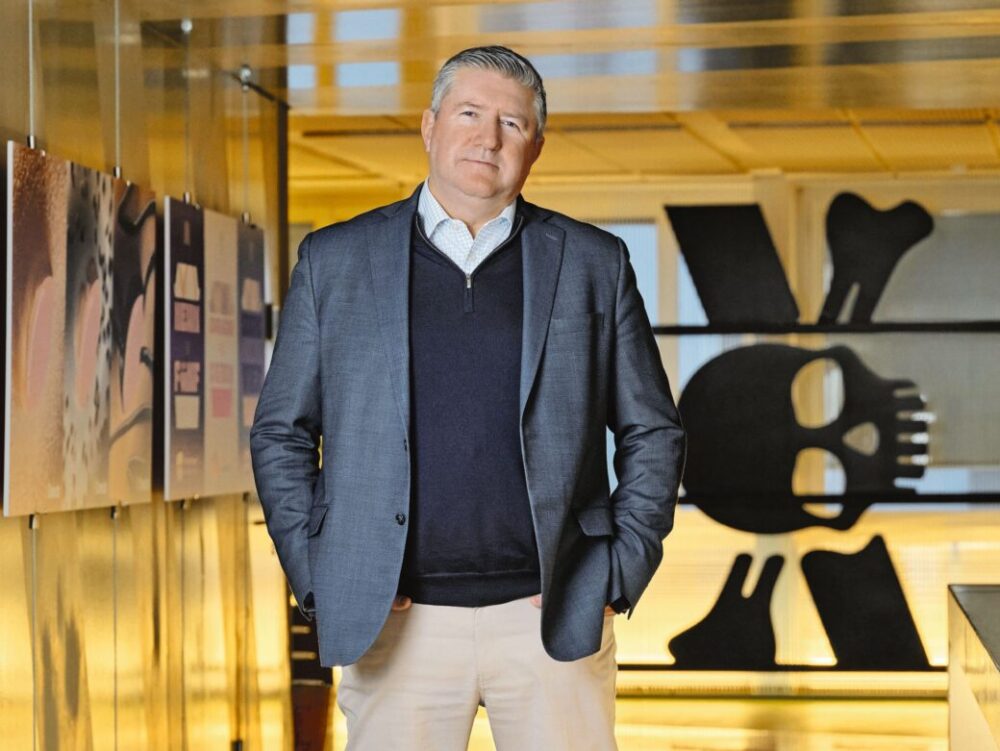More and more agencies are joining the Gisler protocol
In March 2021, the Gisler Protocol was launched. The cross-agency initiative is committed to the multi-faceted representation of gender in communication, marketing and especially advertising. In the meantime, 19 agencies have already joined the protocol. Werbewoche.ch has launched a survey among the participating agencies.

#1 To mean with is not enough
"We pay attention to inclusive language. Even the Duden has abolished the generic masculine. We always use both genders or a neutral form that represents all genders."
#2 He who seeks, finds
"We promote equal opportunities in cooperation with external persons. We recommend a balanced selection of cooperation partners to our customers and are committed to a diversity of perspectives."
#3 Out of the 50s
"We avoid stereotypical role models and show different lifestyles. In this way, we ensure that we do justice to the reality of Switzerland and provide a # stereotype."
#4 Hold up the mirror
"We make our clients* aware of their responsibility in gender representation and support them in communicating in a relevant, contemporary and stereotype-free way."
#5 No man is a potted plant
"We recognize and change ideas that don't feature a woman or where the role of a woman can be replaced by a potted plant or a dog. The time of decorative co-drivers and caring scenery mothers is over.
In the meantime, Agence Trio, Aroma, Diff. Kommunikation, Feinheit, Flin, Gecko Communication, Kargo Kommunikation, Kingfluencers, Kreisvier Communications, KSP, Liip, Maxomedia, Me Kommunikation, Ogilvy, Open Up, Serviceplan, TBWA and Wunderman Thompson have joined the Swiss Jung-von-Matt agencies.
Advertisingweek.ch wanted to know from the agencies involved why they decided to take this step, and asked them each three questions.
Why do we need initiatives like the Gisler Protocol?
Flin: Added up, we Swiss agencies reach millions of people every day - from our point of view, we therefore also have a social responsibility when it comes to issues such as inclusive gender representation. From our point of view, we could also go one step further. For example, similar initiatives would be desirable for other relevant topics such as climate change (no greenwashing, etc.).
LiipIn a network, we generally have more power than when individuals or individual organizations get involved - but of course both are absolutely necessary. Moreover, communications, advertising and digital agencies in particular have a very strong multiplier effect, which is in the nature of things.
TBWA: On the one hand, initiatives that have broad-based support have more chance of being implemented. At the same time, it is in the interest of all agencies to have their finger on the pulse and stand up for equality and inclusion.
Wunderman Thompson: Together we have more impact. It also makes sense to exchange ideas, inspire each other and learn from each other.
Circle four: Across agencies, the protocol is much less likely to degenerate into a profiling exercise. And together, even big things are much easier to initiate.
Kargo: Our industry has its finger on the pulse of the times and is sometimes even a bit ahead of them. (Good) advertising is always influencing our language, setting new trends or ending old ones - and many a campaign and some of the brands that have risen from it have become an integral part of pop culture. This influence must be handled responsibly. A cross-agency initiative like the Gisler Protocol is a strong sign that agencies want to take this responsibility together and, at best, are also ahead of the curve on these issues.
As an agency, what point of the initiative do you find most important?
Flin: Hold up the mirror. No matter how much we talk among ourselves about equality, inclusion, etc. - it only helps if we talk about it with our customers and point out that images and language are important.
Liip: Hold up the mirror. Not just "doing it better" (à la numbers 1 and 5), but also sensitizing our customers to the issues so that the next time - ideally - they themselves think and work inclusively right from the start - and also carry the attitude forward.
TBWA: We do not have a clear priority, but we think that there is still a lot of educational potential and therefore point 4 - holding up a mirror - is highly relevant. Time and again, role models are used that no longer really correspond to the image of society today and therefore need to be challenged. On the other hand, we also have to be careful not to overdramatize topics, since they sometimes only take place in very small circles of society.
Kingfluencers: "He who seeks, finds" is most relevant for us as an influencer marketing agency. We always look to offer a good mix and diversity in our selection.
Diff. Communication: We feel all points are relevant and would not highlight any one.
Circle Four: Holding up the mirror. Customers and brands have a great deal of power when it comes to creating images of society and their acceptance. If we manage, together with our customers, to use the responsibility inherent in this power in the right way, we can hopefully advance many current concerns more quickly than before.
Me communication: "To agree is not enough". I notice again and again that this opinion is still held - unfortunately also by women. I annoy my environment - sometimes tremendously - because I insist on inclusive language.
Serviceplan: Not the most important, but probably the most common, is "Mitmeinen reicht nicht": Adapting language to mean "everyone" is sometimes stylistically laborious - but it represents a culture, an attitude of the people behind it. We therefore pay attention to gender asterisks and the like, even if we don't always like it visually.
Gecko Communication: The sensitization of the clientele. Because it forces us to be sensitive ourselves. Are we really always stereotype-free when advising our clientele?
Kargo: "No man is a potted plant": no one, but really no one, wants to be equated with a potted plant in terms of their significance within a society.
Fineness: All points are equally important. In our agency, inclusive language has already become embedded in our governance as policy and is a matter of course for us. In our political campaigns, campaigns for NGOs or public institutions, it is relevant for success that we depict the reality of diverse lifestyles and avoid stereotypes.
Which stereotype in advertising annoys you the most?
Flin: Colors. It's blatant how advertising still serves clichés when it comes to color selection. Pink equals female, blue equals male. New, and not gender-related, is green. Everything green is supposed to stand for sustainability. It doesn't matter if it's true or not - the main thing is that the color fits.
Liip: To limit the woman to her external features, to use her as a decorative element - pretty, slim, lovely and often sexy.
TBWA: Ultimately, many role models are still based on the recent past, in which the woman is traditionally portrayed in the housewife model and the man with a tie is shown as the provider of the family. These times are definitely over.
Wunderman Thompson: What sucks is the sum of the individual stereotypes. And everything that makes someone look stupid.
Kingfluencers: The "well-intentioned" one.
Diff. Communication: The representation of the woman who is silent, cares or merely serves as a decorative object.
Circle Four: The sexy woman who, apart from her sexiness, doesn't have much raison d'être.
Me communication: When women are used as a decorative element. When you can immediately tell that men have written copy for the women in advertising. When advertisers celebrate the thigh-slapping mentality, such as the Rohr-Max ads.
Serviceplan: Even if one tries to combine stereotypes with cynicism and humor, they remain stereotypes at the expense of a minority. We would be happy if they were dispensed with entirely in the future. We are disturbed and bored by all kinds of clichés, prejudices and generalizations.
Gecko Communication: Doers here, caring women there. That has nothing to do with the real Switzerland.
Kargo communication: The two classics: the naive girl and the tough guy. Preferably in combination.
Fineness: The quiet bon vivant and Mister Mansplainer. These stereotypes in particular deprive women of their voice and turn them into passive supporting actors.









